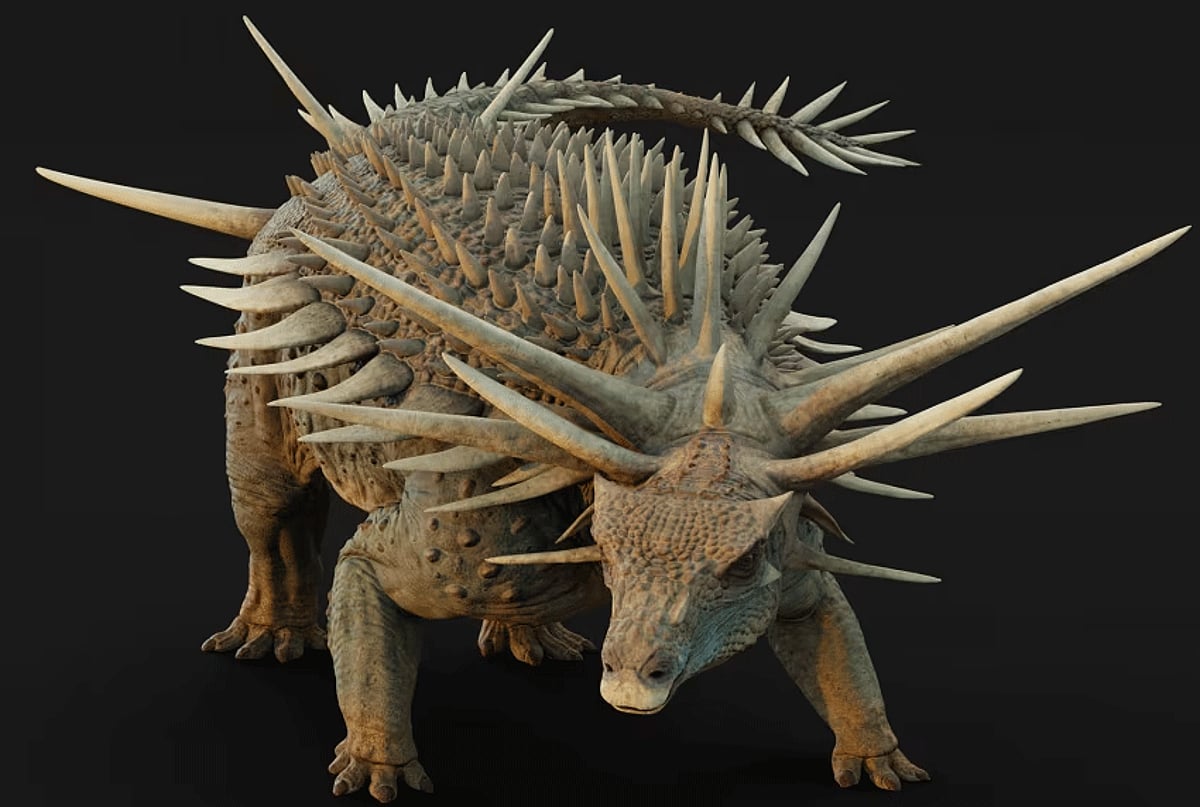A dinosaur bristling with spikes
Researchers told Science Alert that Spicomellus was virtually bristling with bony spikes of all shapes and sizes:
• Rib spikes – sharp projections fused directly to ribs, a feature never seen in any other animal.
• Neck collar – an elaborate ring of meter-long spikes sticking outward like a crown of weapons.
• Hip armour – a pelvic shield with giant outward-facing spikes.
• Tail weapon – fused vertebrae suggesting a spiked club developed at least 30 million years earlier than thought.
“It was spikier than a punk rave,” quipped paleontologist Richard Butler of the University of Birmingham, who co-led the study published in Nature.
Dr. Susannah Maidment of London’s Natural History Museum told Science Alert: “I’ve spent my career working on armoured dinosaurs, but I’d never seen anything like this. At that moment I realised we were looking at something unlike anything anyone had ever found before.”
According to CNN, scientists now suspect the armour was used for display — much like a peacock’s tail or a deer’s antlers. These flamboyant features may have played a role in courtship rituals, territorial dominance, or mating competitions.
“The armour surely had some defensive function, but it’s difficult to imagine how the spikes were used for defence. They seem like enormous overkill,” Butler told CNN.
Filling gaps in dinosaur evolution
The discovery, both outlets note, rewrites what we know about ankylosaur evolution. Normally, early members of a dinosaur group are simpler, with complexity developing later. But Spicomellus flips that assumption: The most elaborate armour of all came at the very start of the ankylosaur lineage.
This also marks the first ankylosaur discovered in Africa. Previously, the species was known only from a single rib fragment described in 2021. New excavations in 2022 and 2023 revealed much more, thanks in part to a Moroccan farmer who safeguarded bones from floodwaters, according to Science Alert.
However, scientists caution that fossil poaching in Morocco threatens research. Science Alert reported that some Spicomellus bones have already appeared for sale in Europe, possibly from the same individual described in the new study. To protect future discoveries, researchers are keeping excavation sites secret.
